Frontier Centre for Public Policy
Christmas: As Canadian as Hockey and Maple Syrup

From the Frontier Centre for Public Policy
By Gerry Bowler
Well, they’re at it again. A year after a Canadian Human Rights Commission position paper labeled Christmas “discriminatory” and an example of “colonialist religious intolerance”, an Alberta public school has cancelled a winter concert because marking Christmas isn’t inclusive enough. The principal of Whitecourt’s Pat Hardy Elementary stated, “Not all students celebrate Christmas, and their families may or may not choose to have them participate in the Christmas concert. Other families celebrate Christmas as a religious holiday but do not want children engaging in the non-religious parts such as Santa, Christmas trees, etc.” It was suggested that a spring concert might be more inclusive, presumably on the theory that no one gets too worked up about the vernal equinox.
The principal’s actions are scarcely news; for years schools and public officials have been reluctant to stage any activity around the celebration of the Nativity. “Christmas concerts” have been relabelled or cancelled; “Christmas trees” have been termed the “Holiday Tree.” Or a “Care Tree.” A “Multicultural Tree.” A “Tree of Lights.” A “Community Tree.” A “Winter Solstice Tree.” A “Grand Tree.” A “Special Tree.” A “Family Tree.” The “Annual Tree.” A “Festive Bush.” A “Unity Tree.” A “Culture Tree.” Activists in Saskatoon objected to city buses displaying a “Merry Christmas” wish; a Toronto judge ordered a Christmas tree removed from the courthouse lest it makes non-Christians feel unwelcome; inspired by the American school that mandated that the lyrics to “Silent Night” be changed to “Silent Night, mmm, mmm, mmm, / All is calm, all is bright, mmm, mmm, mmm”, a principal at an Ottawa school excised the C-word from the ditty “Silver Bells”. Thus: “Ring-a-ling, hear them sing; Soon it will be a festive day.”
There are several ways of dealing with this perennial issue. One is to remove religion from the public square altogether – that would certainly suit the secular fundamentalists – another is to play the majoritarian card and insist that since Christians outnumber other faith communities their will should hold sway. Some might want to dilute any mention of Christianity from the season while others might wish to include every other religion’s holy days on the school calendar.
I have a solution to this seasonal dilemma. It is to adopt the attitude taken by leaders of racial and religious minorities in Canada when asked if they are offended by mentions of Christmas. Their invariable answer is, of course not, Christmas is an integral part of Canadian culture.
Christmas is indeed Canadian, as native to our land as Hockey Night in Canada, Stompin’ Tom Connors, or pineapple on pizza. It has been Canadian longer than poutine, mediocre socialized healthcare, or the last time Toronto won the Stanley Cup. The Vikings who found a home in Newfoundland a thousand years ago likely celebrated Christmas, and there’s no doubt that the holiday has been observed for half a millennium by later European settlers.
Though a current American politician may regard Canada as the 51st state and a current Canadian politician may opine that we are a post-national entity with no core identity, Canada, over the centuries, has developed a unique Christmas culture. We have beautiful carols of our own – “D’où Viens-Tu Bergère?”, the “Huron Carol” (“Jesus Ahatonia”), the first ever written in a North American indigenous language, and J.P. Clarke’s 1853 “A Canadian Christmas Carol”– not to mention secular seasonal music such as “Voici Le Père Noël Qui Nous Arrive” by the legendary Mary Bolduc, the melancholy “River” by Joni Mitchell, Bob and Doug Mackenzie’s take on “The Twelve Days of Christmas” and the immortal “Honky the Christmas Goose,” as sung by Johnny Bower (the last Leaf goalie to win a Stanley Cup).
We have unique Christmas foods – the taffy pull on St Catherine’s day, the tourtière of the revéillon, rapee pie, cipâte, butter tarts, Nanaimo bars, ragoût de pattes, “chicken bones,” and “barley toys.”
Though Santa Claus has his own Canadian postal code (H0H 0H0), we do not count him as a citizen, but we do have our own native Gift-Bringer in the form of Mother Goody (also known as Aunt Nancy or Mother New Year).
Canada can boast the first Christmas tree in North America, the custom introduced by Baroness Frederika von Riedesel whose husband Baron Friedrich Adolphus von Riedesel had brought 4,000 German Brunswicker soldiers in 1776 to protect Canada from American invasion. The first department store Santa was employed in Fredericton, New Brunswick, in 1869. Our post office issued the world’s first Christmas stamp in 1898. Eaton’s department store in Toronto staged the first Santa Claus parade in 1905.
Only in Canada can we see mummers of all sorts at Christmas – Janneys, Ownshooks, Fools, Belsnicklers, and Naluyuks; only in Canada do door to-door canvassers under the guise of “la guignolée” solicit donations to charity while singing a song threatening to torture the oldest daughter of the house.
So the next time objections are raised to the appearance of Christmas in the public square, simply state that it’s a long-standing Canadian custom, sanctified by time and universal practice, as deeply embedded in our culture as the red maple leaf. It’s what we do. Canadians do Christmas.
Gerry Bowler, historian, is a Senior Fellow at the Frontier Centre for Public Policy
Frontier Centre for Public Policy
False Claims, Real Consequences: The ICC Referrals That Damaged Canada’s Reputation
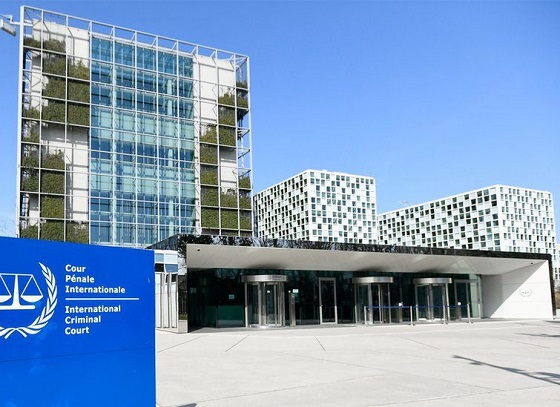
From the Frontier Centre for Public Policy
By Nina Green
The University of Manitoba has not provided the name of a single Indian residential school student who went missing and whose parents did not know at the time what had happened to their child. Not one.
Why has Canada twice been referred to the International Criminal Court on the basis of false claims about Indian residential schools?
The answer is simple.
The ultimate cause is the University of Manitoba’s National Student Memorial which falsely claims that it is a list of students who died on the premises of Indian residential schools and students who went missing from Indian residential schools. The University of Manitoba site tells users to:
Click on a region below to see a list of residential schools. Each residential school page contains a list of students who died or went missing at that school.
Those claims by the University of Manitoba are not true.
Firstly, the majority of the 4139 students currently on the University of Manitoba’s Student Memorial Register did not die on the premises of an Indian residential school. Most died elsewhere, as established by the Truth and Reconciliation Commission report entitled Missing Children and Unmarked Burials, which is in Table 4. Location of residential school deaths, 1867–2000 on page 21 states that only 423 named students died on the premises of an Indian residential school over the course of 133 years, an average of 3 students a year.
Thus, the majority of students did not die on the premises of Indian residential schools. They died elsewhere – in public hospitals or of illness or accidents on their home reserves, accidents which included house fires, drownings, gunshot wounds, vehicle accidents, falling trees, being hit by trains, and other accidental deaths, as established in hundreds of provincial death certificates.
Secondly, none of the students on the University of Manitoba’s lists went missing from an Indian residential school. To date, the University of Manitoba has not provided the name of a single Indian residential school student who went missing and whose parents did not know at the time what had happened to their child. Not one. And far from being ‘missing’, in fact hundreds of provincial death certificates establish that the students were buried on their home reserves by their families and communities.
Based on the University of Manitoba’s misleading lists, the media and the federal government uncritically accepted the false claim by the Kamloops Band on 27 May 2021 that the Band had discovered ‘the remains of 215 children’. After three years, the Band downgraded that false claim on 18 May 2024 to the claim that it had merely discovered ‘215 anomalies’, which could be anything, and are almost certainly the remains of the 2000 linear feet of trenches of a septic field installed in 1924 to dispose of the school’s sewage.
The first referral to the International Criminal Court by a group of 22 lawyers
Only a few days after the Kamloops Band made its false claim, on 3 June 2021 a group of 22 lawyers sent a 14-page complaint to the ICC requesting the Prosecutor to initiate an investigation of a ‘mass grave’ of Indian residential school students which had been discovered at Kamloops. The claim by the 22 lawyers that a ‘mass grave’ had been discovered at Kamloops was, of course, false.
The International Criminal Court quickly declined jurisdiction in November 2021, and on 13 September 2022 Dr Chile Eboe-Osuji, former President and Judge of the International Criminal Court, informed Special Interlocutor Kimberly Murray and those present at her National Gathering in Edmonton of the reasons for doing so. As reported by Chief Derek Nepinak, Dr Eboe-Osuji stated unequivocally that:
There is no pathway to the International Criminal Court for the situation of the historical Indian residential school system in Canada.
Dr Eboe-Osuji’s presentation has never been made available on the Special Interlocutor’s website, and requests to both Kimberly Murray and Dr Eboe-Osuji for a copy of his presentation have gone unanswered.
The second referral to the International Criminal Court by Special Interlocutor Kimberly Murray
Undeterred by the ICC’s refusal to accept jurisdiction and the reasons offered by Dr Eboe-Osuji in his presentation to her 13 September 2022 National Gathering, Kimberly Murray pursued the issue based on the University of Manitoba’s lists falsely claiming that all the students on its lists died on the premises of specific Indian residential schools or went missing from those schools.
On 29 October 2024, Kimberly Murray delivered her final report to Minister of Justice Arif Virani. However, as she told the Senate Standing Committee on Indigenous Peoples on 27 November 2024, Kimberly Murray also sent her report to the International Criminal Court, requesting Canada’s prosecution by the Court.
How the ICC will react to Kimberly Murray’s referral of Canada for prosecution is as yet unknown.
Damage to Canada’s international reputation
Canada’s reputation has been irreparably damaged by these two referrals to the International Criminal Court based on the University of Manitoba’s National Student Memorial which falsely claims that it is a list of students who died on the premises of specific residential schools or went missing from those specific schools.
It cannot be reiterated often enough:
(1) that most students whose names are on the University of Manitoba’s National Student Memorial did not die on the premises of a residential school;
(2) that most students on the University of Manitoba’s National Student Memorial died in public hospitals or of illness and accidents on their home reserves;
(3) that the University of Manitoba has never provided the name of a single student who ever went missing from an Indian residential school whose parents didn’t know what happened to their child; and
(4) that the majority of students whose names are on the University of Manitoba’s National Student Memorial were buried by their families and communities on their home reserves. Over time, their families and communities have forgotten them, and through neglect of the grave markers, no longer know where in their reserve cemeteries they are buried.
The University of Manitoba’s National Student Memorial has misled Canadians and has resulted in two referrals of Canada for prosecution by the International Criminal Court based on false claims about ‘mass graves’ and ‘missing’ and ‘disappeared’ Indian residential school students.
The federal government and the Catholic Church must demand that the University of Manitoba take down its false and misleading National Student Memorial.
Nina Green is an independent researcher who lives in British Columbia.
Energy
Guilbeault’s Emissions Obsession: Ten Reasons to Call Time Out on Canada’s CO2 Crusade
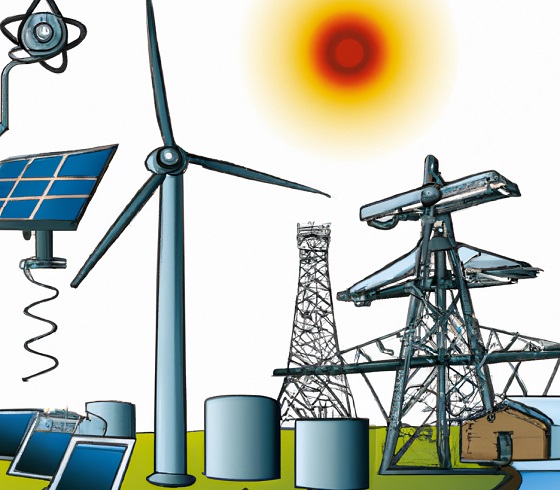
From the Frontier Centre for Public Policy
Before we collectively devastate our economies, further reduce our birth rates in a misguided attempt to save the planet, squander trillions of dollars, and halt human progress by making energy both scarce and exorbitantly expensive, it’s crucial to remember that human-induced climate change is not a settled fact, but rather a hypothesis largely unsupported by the history of the climate but supported by climate models that have considerable error built into them.
Canadian Environment Minister Steven Guilbeault recently announced a plan requiring the oil and gas industry to cut CO2 emissions by more than one-third from 2019 levels by 2030. This deadline might seem far off, but it also stipulates that at least 20 percent of light-duty vehicle sales must be zero-emission by 2026, a deadline that’s just around the corner. This is all part of Guilbeault’s strategy to achieve the ambitious net-zero emissions target by 2050.
There are at least ten reasons suggesting that this plan is absurd.
- CO2 is Not a Pollutant.
Carbon dioxide is, in fact, a fertilizer crucial for the growth of all vegetation. Higher concentrations of CO2 result in increased crop yields and more productive forests. Healthier forests, in turn, absorb more CO2, providing oxygen in exchange which is essential for the survival of all living organisms including humans.
- CO2 is a Trace Gas
During my extensive career as a university professor, I encountered numerous students eager to support policies that might devastate the livelihoods of thousands of men and women who depend on the oil and gas industry, believing these sacrifices would save the planet. Their near-religious zeal was only matched by their stunning ignorance of basic CO2 facts.
Class surveys I conducted showed that almost one hundred percent of my students were unaware that CO2 is a trace gas, with its atmospheric concentration having varied significantly over centuries and even seasonally. Currently, CO2 represents about 0.04% of the atmospheric gases, or approximately 420 parts per million (ppm). By comparison, nitrogen makes up about 78%, and oxygen around 21%.
The best estimates suggest that human activities contribute roughly 4% of the total annual CO2 emissions (16 ppm). Canada’s share of global emissions is approximately 1.5% (0.24 ppm), essentially a rounding error in the total calculation.
- Why Alberta and Not China?
It is no secret that Guilbeault harbours a special animosity towards Alberta. His energy regulations appear designed to severely impact Alberta’s economy despite the province being a relatively minor player on the global stage. In contrast, China, by far the largest contributor to global CO2 emissions, builds two new coal-powered (dirty) power plants every week and is the primary beneficiary of Canada’s coal exports. Why doesn’t Guilbeault turn his scornful gaze towards the People’s Republic? Even during his visit to China in August 2023 for climate talks, not only did he overlook that country’s appalling environmental track record, to add insult to injury, while there he critiqued Suncor for recommitting to oil sands development, highlighting a troubling policy double standard.
- Watch What They Do, not What They Say
The economic and cultural elites, who incessantly warn of an impending climate catastrophe, seem to contradict their own claims by their extravagant lifestyles. Their opulent residences, frequent use of private jets, and other extravagances reveal a significant disconnect between their rhetoric and their behaviour, suggesting either hypocrisy or a lack of belief in the very crisis they promote.
- Magical Thinking
When they purport to compel the oil and gas industry to adopt new technologies, politicians and policymakers indulge in a particularly delusional form of magical thinking. First, the industry is already one of the most innovative sectors in the economy. Second, these individuals demonstrate a profound ignorance of both climate change and the complex challenges of energy production. As is typical of low-information politicians, they seem to believe that all they need to do to enact change in line with their utopian ideals is to snap their fingers or twitch their collective nose.
- A Multiplier of Human Misery
All the regulations that politicians like Guilbeault introduce with a regularity that rivals the proverbial cuckoo clock have nothing to do with creating new sources of energy or making energy more accessible and affordable. If they were genuinely concerned about their constituents’ welfare, these politicians would incentivize nuclear energy. But they conspicuously do not. These incessant regulations, taxes, and oppressive energy policies serve one purpose: to inflate energy prices so high that middle-class individuals are forced to drive less, reduce their energy use for heating and cooling their homes, and drastically curbing manufacturing. To the extent that such policies persist, they will impose an increasingly devastating economic burden on the poor and the working class.
- Extreme Weather Events
A radical reduction in CO2 emissions will not only lead to a weaker economy and increased poverty, but it will also diminish our capacity to respond to extreme weather conditions, which will occur regardless of the taxation governments impose on human activities.
- The Used-Car Salesman Syndrome
You know you’re being conned when a used car salesperson fails to mention the downsides of the vehicle being considered. The same skepticism and caution should be applied to politicians who tout only the benefits of their proposed policies without discussing the costs. Either they are blissfully unaware of these costs, or they believe they will be insulated from the real-world repercussions of their harmful policies due to their status, wealth, or connections.
- Anti-Human Perspective
While it’s unwise to gratuitously attribute malicious intent to anyone, the evidence suggests that proponents of radical climate change policies operate from what can only be described as an anti-human perspective. They view human beings as liabilities and parasites rather than, as the Judeo-Christian tradition asserts, the valuable assets they truly are.
- A Matter of Debate
Before we collectively devastate our economies, further reduce our birth rates in a misguided attempt to save the planet, squander trillions of dollars, and halt human progress by making energy both scarce and exorbitantly expensive, it’s crucial to remember that human-induced climate change is not a settled fact, but rather a hypothesis largely unsupported by the history of the climate but supported by climate models that have considerable error built into them.
In conclusion, Bjorn Lomborg, the Danish political scientist and founder of the prestigious Copenhagen Consensus Center—an organization renowned for producing some of the most authoritative studies on environmental issues—wisely reminds us that while there are environmental concerns needing attention, it’s questionable whether climate change constitutes an existential crisis that warrants dedicating all our resources at the expense of human life and flourishing.
Pierre Gilbert is Associate Professor Emeritus at Canadian Mennonite University. He writes here for the Frontier Centre for Public Policy.
-

 Alberta20 hours ago
Alberta20 hours agoProposed $70 billion AI data centre in MD of Greenview could launch an incredible new chapter for western Canadian energy
-
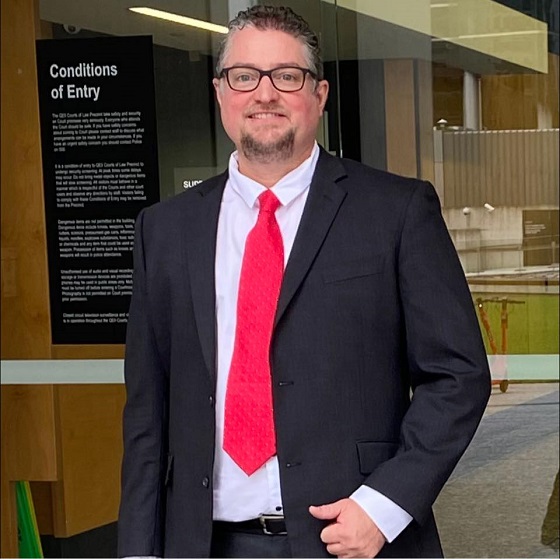
 COVID-192 days ago
COVID-192 days agoAustralian doctor who criticized COVID jabs has his suspension reversed
-

 Business2 days ago
Business2 days agoMassive growth in federal workforce contributes to Ottawa’s red ink
-

 Alberta16 hours ago
Alberta16 hours agoYour towing rights! AMA unveils measures to help fight predatory towing
-

 Frontier Centre for Public Policy2 days ago
Frontier Centre for Public Policy2 days agoFalse Claims, Real Consequences: The ICC Referrals That Damaged Canada’s Reputation
-
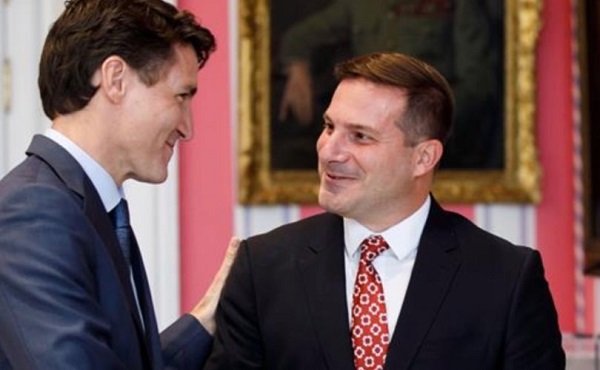
 COVID-192 days ago
COVID-192 days agoFormer Trudeau minister faces censure for ‘deliberately lying’ about Emergencies Act invocation
-

 National2 days ago
National2 days agoWhen’s the election? Singh finally commits. Poilievre asks Governor General to step in
-
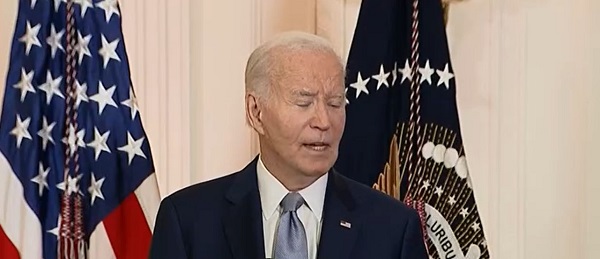
 Daily Caller2 days ago
Daily Caller2 days agoParty Leaders Exposed For ‘Lying’ About Biden Health



